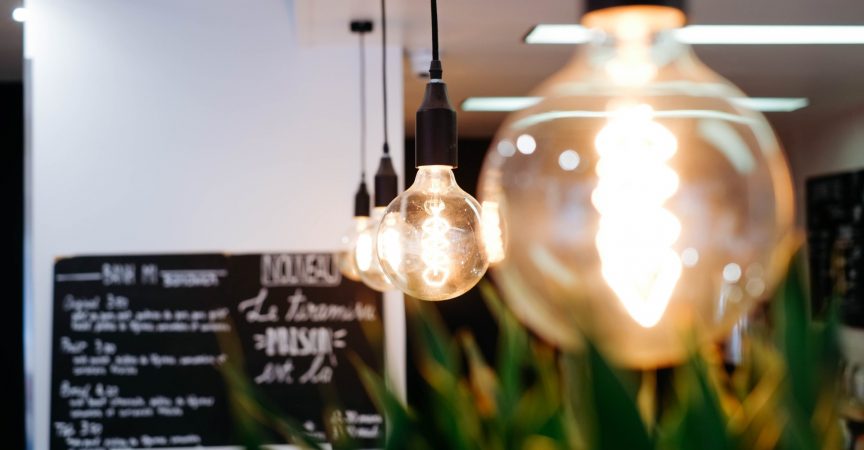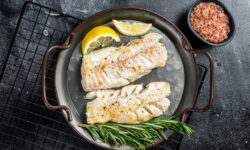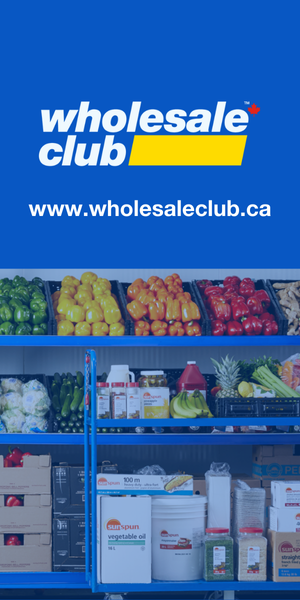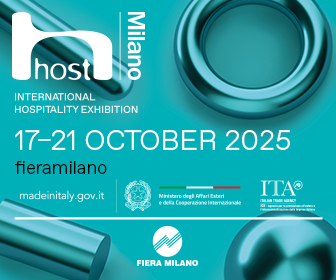Tips from the Experts on Reducing your Restaurant’s Energy Use
These days, sustainability is not simply a basic idea for foodservice operators to apply to their daily practice, but rather a multi-layered concept, addressing not only climate and environmental concerns, but also longevity and continued existence.
Here we’ll meet two people who put their time and energy into helping the foodservice industry create sustainability, each in a very different way: Janine Windsor, President of LEAF, the sustainability certification program; and chef and media pro André LaRivière, sustainability food expert and author of The Next Course, a guide to the re-invention of the modern urban restaurant.
Janine Windsor
Bring sustainability to the table

Like many students, Janine Windsor worked in foodservice while at university. During that time and later, while completing her dietetic internship, she was struck by the amount of daily waste the industry produces. Determined to do something about it, she put together a team of accomplished environmental and foodservice pros to create LEAF (Leaders in Environmentally Accountable Foodservice), a national, non-profit foodservice certification program.
“I’ve always cared about protecting the environment,” says Windsor. “These days, I am far more concerned about the state of our planet. I often think about the planet my children and grandchildren will be left with and I’m driven to do what I can to be part of the solution. I am an optimist too and believe we can turn things around, but it has to be all hands on deck.”
LEAF’s goal is to help foodservice operators make the best choices to reduce their environmental impact. Their accredited consultants review ten key areas and offer three levels of certification to restaurants demonstrating environmental and sustainable practices. They offer resources, help identify rebates and incentives, and promote partnerships. In addition, the organization presents the LEAF and Eco-Innovator awards at the RC Show, to provide national recognition to businesses that have made significant changes.
The benefits of LEAF certification include lower costs, lower emissions, industry recognition and customer appeal. And the message is spreading. Windsor is happy with what LEAF has accomplished in its first ten years but is already planning for the next decade. “Our organization has identified some strategic goals and initiatives to ensure we’re able to expand our reach and impact exponentially. We will continue to help current businesses reduce their environmental impact, but also look at ways to reach those just starting their careers in the industry and ensure sustainability education is accessible.”
When asked if she could pick one thing for foodservice operators to do to improve their sustainability (besides getting accredited by LEAF, naturally), Windsor’s answer was to look for ways to reduce energy use and ultimately, emissions. “That’s a broad answer, but there are so many ways and opportunities to achieve that.”

Five tips to help reduce your overall energy use:
1) Choose only EnergyStar certified equipment for both high performance and efficient energy use.
2) Switch to LED bulbs for all your lighting needs, front and back of house.
3) Install a programmable thermostat. Some new models can be set to adjust the temperature in specific areas as well as at specific times, so you won’t be heating/cooling unused areas unnecessarily.
4) Install low-low taps and toilets in all restrooms. Modern versions use substantially less water than older models.
5) Make regular maintenance part of your routine. Caulking windows, fixing small leaks, even dusting lighting fixtures can all add up to savings
Windsor knows steps like these are important. “But,” she says, “You can also do things like incentivizing staff — and customers — to walk, bike or take public transit to get to you.”
Her final suggestion? “Reach out — we’re always happy to help”
André LaRivière
Reinventing the modern urban restaurant

André LaRivière’s CV is wide and varied. He started at CBC radio, producing programs and even albums. He chose a second career as a chef, training in NYC and working internationally. When he returned to Canada, he combined his training in foodservice and media as a writer and editor covering all aspects of the industry. In 2007, LaRivière founded the Green Table Network in B.C. to foster foodservice sustainability. He is currently a principal of fish+river, a progressive foodservice consulting company, and the author of The Next Course.
The Next Course tracks the evolution of the restaurant through the transforming landscape of today’s foodservice industry. Our world is changing rapidly due to urbanization, climate challenges, technological developments and demographic shifts. The shift is vast and rapid, but there isn’t just one single way forward. To provide some guidance, LaRivière asked professionals of all stripes, chefs, suppliers, city planners, big “What if?” questions about sustainability practices. His book is a comprehensive collection of their thoughts and strategies.
When doing his research, LaRivière never received an “I never thought or looked at it that way” response to any of his questions. “The majority of people in this industry already understand the need for ‘future-proof’ innovation across the board, from supply chains to business models to human resources, and many of them have thoughtful, forward-thinking ideas on how to realize that better future. I think the core challenge is also widely understood – how can we get this fiercely competitive industry to collaborate sustainably on new ideas and models that benefit both our business goals and our communities. I think the will is there and on the rise. We just need to (quickly) find more effective ways.”
LaRivière curated the Restaurant of the Future at RC Show 19. He also helped helm the original Restaurant of the Future challenge in Vancouver in 2011, the transformation of O’Doul’s restaurant into Forage. Though the goals of each project were different, “the process and strategies behind each project were pretty much the same – reduce consumption, impact and waste, while boosting performance, versatility and comfort.”
“The bonus of the RC Show exhibit,” he says, “was its open concept and a wide variety of service needs, which was the ideal venue to showcase the latest in electric and induction countertop equipment. This approach is gaining ground in all areas of foodservice and it’s a positive and sustainable trend.”
If The Next Course inspires you to ask your own big, “What if?” questions, LaRivière also offers workshops to help you find your own answers and future-proof your foodservice operation. “In many ways, the work I do with chefs and restaurant operators is much like my previous gig working with musicians and promoters. If the things I’m able to do can help them succeed by collaborating more effectively, I’ll always keep coming back for more.”
“Of course,” he adds, “now there’s another, more crucial motivation. Our collective need to succeed in being more sustainable is urgent. I think that, too, is more widely understood.”
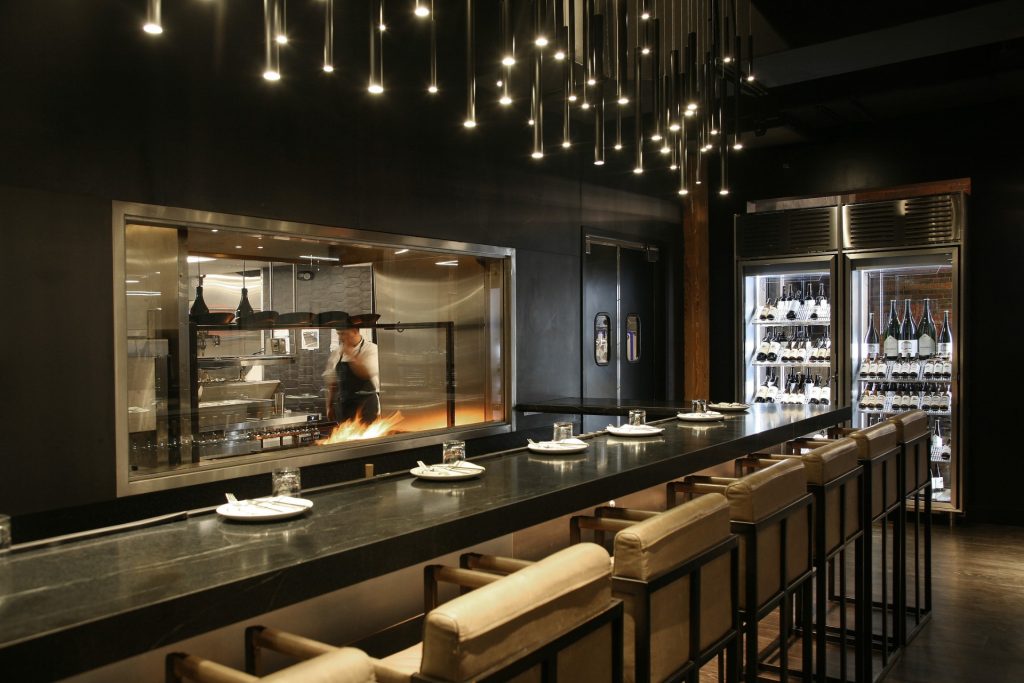
Five suggestions to build sustainability into your design and operations:
Add plant-based items to your menu, and choose locally sourced, ethically raised meat.
Reduce your use of single-use plastics. That’s not just straws, but also takeout and condiment containers.
Track your usage across the board. Water and energy use; waste; reliance on ingredient transportation. When you know what your patterns are, you can begin to change them.
Sustainability can be ‘baked into’ your design. From repurposed and reclaimed furniture to resale EnergyStar equipment, there are many choices available to today’s foodservice operators.
Choose induction appliances where possible. Induction offers the most efficient transfer of heat when cooking, which will lower energy use and cost, as well as save time.
LaRivière is a big fan of modern induction equipment. “This category of versatile, small-footprint gear offers a lot to smart restaurants: high-performance, low-carbon operations, ‘plug’n’play’ versatility… not to mention the increasingly valuable ability (inexpensive urban real estate) to do more with less.”
If you want more insights on reducing your footprint and helping your bottom line, be sure to register for the FREE Foodservice Energy Forum at RC Show 2020.



